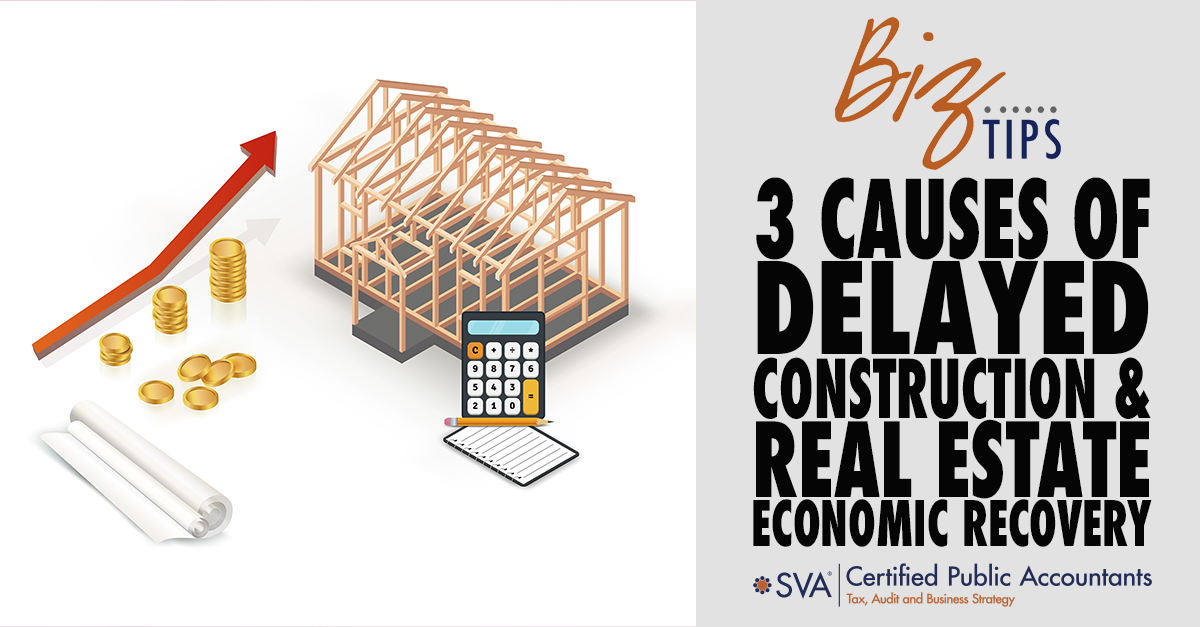Despite the huge national infrastructure bill coming up, construction and new-construction real estate industries have been slower to respond to the expected turnaround. In addition to COVID-19, other factors are causing problems with these industries’ ability to recover.
But how long will it last and what can you do to protect your company in the meantime?
Issues Impacting Industry Recovery
The pandemic has caused multiple issues that are preventing these industries from recovering.
Cost of Materials
A combination of plant shutdowns due to COVID-19, as well as homeowners making improvements to make their homes more livable and enjoyable, has made prices for materials skyrocket.
With a 20% increase in the past few weeks, overall prices are up 50% year-over-year, with lumber up over 70% in the past year. This raises the cost of homes by tens of thousands of dollars in materials alone. Part of this increase is also related to increased fuel costs.
In addition to the increased cost, this does not take into account the issues contractors are facing with longer lead times, shipments that are held to a portion of prior orders, and similar concerns, while the existing steel and aluminum tariffs continue to compound the problem of high material costs.
Disruptions in the Supply Chain
The process started in early 2020 as factories and transportation hubs were closed. Employees were laid off or put on furlough, and some haven't come back due to high unemployment payments. Combined with safety measures that have been put in place for COVID-19, a lot of suppliers are still not working at full capacity, while having fewer workers for ports, ships, loading docks, and similar transportation hubs has caused significant additional delays in the loading and unloading process.
Beyond these factors, Mother Nature has also caused issues with extreme weather issues such as hurricanes, droughts causing wildfires, and similar issues, causing additional interruptions of deliveries. On top of that, months of discussions on international tariffs have caused issues with global trade options.
Shortages of Labor
If there's one thing you're probably noticing as a theme in these issues, it's that we have a labor shortage. A lot of construction workers were laid off last year as nonessential projects were closed down, social distancing needed to be sorted out, and sufficient PPE for crews was not available.
At this point, it's expected that a lot of these workers have moved on to other industries, such as the 60% who never returned to the industry after the 2008 recession closed down a lot of projects. It's expected that construction alone will need to hire somewhere between three-quarters and one million workers to meet the increases in demand. With this level of demand, skilled workers will be able to charge a premium for their services.
Protecting Your Business During Delayed Recovery
With all this happening, you'll want to make some plans including longer lead times, higher costs, and diversifying your supply chain, especially for key materials. Consider moving to different materials if needed, especially because you can take a tax credit for Research and Development. But what else can you do to protect your business during this difficult time?
There are several options available:
- Consider negotiating contracts that split the risk, with stipulations on what constitutes significant price increases as well as uses of contingency clauses that are permitted or prohibited.
- Use different price strategies including cost-plus, fixed-fee, value-priced, and not-to-exceed to adapt to different circumstances.
- Shorten the schedule to save labor costs, but don't settle for poor quality workmanship.
- Reduce your bid times to 30 days to avoid serious material price increases.
- Communicate with stakeholders through the process to create mutually beneficial outcomes.
When Will it End?
Though the project backlog has gone down slightly, the rest of the Associated Builders & Contractor's Construction Confidence Index shows contractor optimism for the near future.
Residential real estate is still a seller’s market due to low-interest rates and if this continues, you can expect the market to remain that way for the rest of 2021. Commercial and industrial construction will probably rebound if the $1.7 trillion infrastructure bill passes, though the worker and supply shortage can cause contractors to lose profitability on traditionally tight profit margins.
These issues will begin to sort themselves out over time, but it may be early 2022 before we see solid relief in the industry. So while you should remain positive, be cautious for the moment. Do proactive strategic planning for contracts, schedules, pricing, and supply chain timelines. Keep in touch with your stakeholders and take advantage of the tax credits and incentives that are currently available.
Above all else, stay in touch with your advisors as the industry landscape continues to shift so that you can leverage any changes to your company's advantage.
@ 2021 CPA ContentPlus

